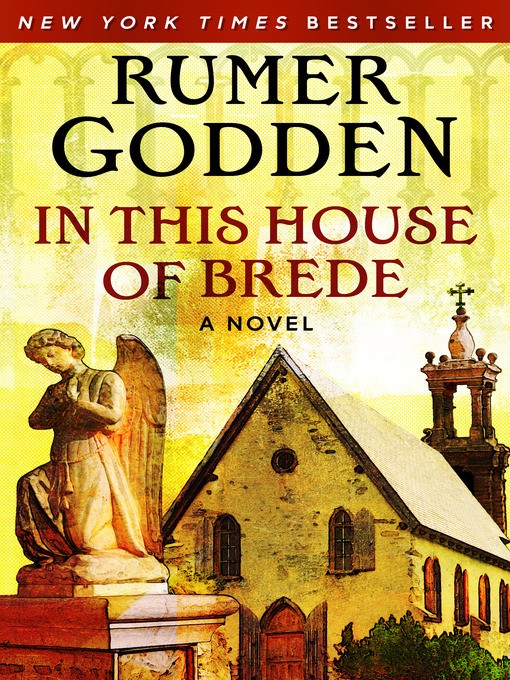In This House of Brede
Someone mentioned this novel by Rumer Godden a few years ago, so when it came up as a Kindle “deal,” I purchased it and started to read. I didn’t have any real expectations, but this book worked quietly and steadily to draw me in.
The story begins similarly to another favorite of mine, The Scent of Water. In that story, Mary Lindsay leaves a successful career for life in an ancient house in the country. The house turns out to have a history as the infirmary of a Cistercian monastery, and Goudge writes of its influence on Mary: “The unseen spirit of a place has its deep desire and if it’s the same as yours then your small desire goes down like an anchor into the depths.”
In a similar way, In This House of Brede begins with a successful career woman leaving her job in response to a call to a life of prayer and service. She enters the Brede monastery and begins the long process toward solemn vows as “Sister Philippa.” We follow her through about ten years as she passes through various stages of spiritual deepening and commitment. Over the course of that time, we come to know many of the nuns at Brede, as well as a few of Philippa’s friends “from outside” who remain in touch.
Brede is a Benedictine monastery, which intrigued me after reading The Benedict Option. Over and over, we are reminded that monastery life is not a retreat from the world. If anything it amounts to a more active engagement of sin as the spiritual theatre simplifies distractions from one’s own inner life. Though we (or at least, I) tend to see from Philippa’s perspective, the story isn’t exclusively about her. One would be hard pressed to make a case for a single main character. As community life is the focus of the novel, we come to know a number of the nuns and the struggles and joys they experience: loss of the longstanding Abbess Hester through her death, and her replacement; money problems, some of them caused by Abbess Hester’s folly and the power of her personality; past pain and its interference, in Philippa’s case, with her ability to be wholeheartedly committed; personality conflicts; relational issues of all kinds. We see that the myth of the “monastic retreat” is not borne out in the lives of these women who are faced again and again with human sin and must confront it in loving devotion to God.
The gentleness and patience of the Brede atmosphere pervade the story, and we are given a glimpse of a slower, toilsome, in some ways more austere life that nevertheless yields great riches. Like The Scent of Water we feel the influence of the monastery’s human history. I came to care very much for the characters. Like the days at Brede, the story proceeds at a deliberate, unhurried pace, cultivating a reflective tone through its frequent jumps into the past to explain present situations. It is a ruminative story that invites us to slow down.
Rumer Godden wrote the book out of a desire to describe monastery life as it really is. The story shows us several of the common, often patronizing misconceptions about a life of prayer: that it is an imprisonment; a form of mental illness; a second-class life; a throwing away of life. It takes courage and strength to fulfill their vows, and as altruistic as laying down your life in service is, the women in this story do not get much support, initially, from their friends or loved ones.
In This House of Brede was for me a rich, quiet read that ultimately issues a call to create meditative spaces for prayer and listening. In our age of noise, the book offers an alternative vision of deliberate turning aside. We may not feel the call to monastic life (there is certainly a legalistic side that the story illuminates as well), but the needs for structure, mental and spiritual space to think and listen, and meaningful vocation are worth being deliberate about.



3 Comments
Carol
I bought this book about 2 years ago & want to read it this year. Interesting that you mentioned our ‘age of noise’ – just finished The Screwtape Letters where C.S.Lewis uses term ‘the Kingdom of Noise.’ Excellent review & thoughts, thanks.
Michele Morin
I’ve heard of this one too, but never read it. However, I was really intrigued by your mention of Elizabeth Goudge, because I just received one of her books and am so excited to dig in!
hopeinbrazil
I enjoyed this too. You make me want to read The Benedict Option.